Experts Say You’re Cleaning Your Bathroom All Wrong
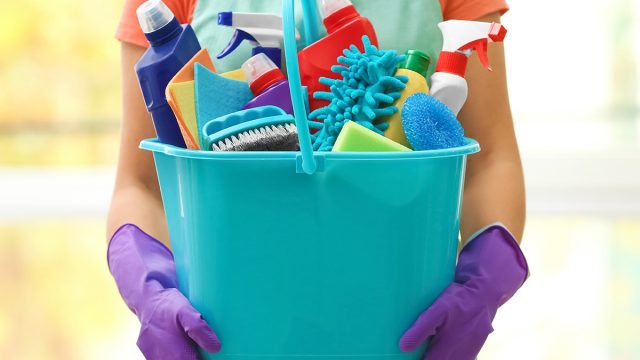
How well are you cleaning your bathroom? “Thanks to daily bathing or showering—possibly by several family members—your bathroom can retain a lot of moisture,” infectious disease specialist Smitha Gudipati, MD, tells Henry Ford Health. “And bacteria love moist environments in which they can thrive.” Regular cleaning of the bathroom is crucial to prevent the spread of dangerous bacteria. Here’s how you might be cleaning your bathroom wrong, according to experts.
RELATED: The Ultimate Deep-Cleaning House Checklist.
Forgetting To Dust
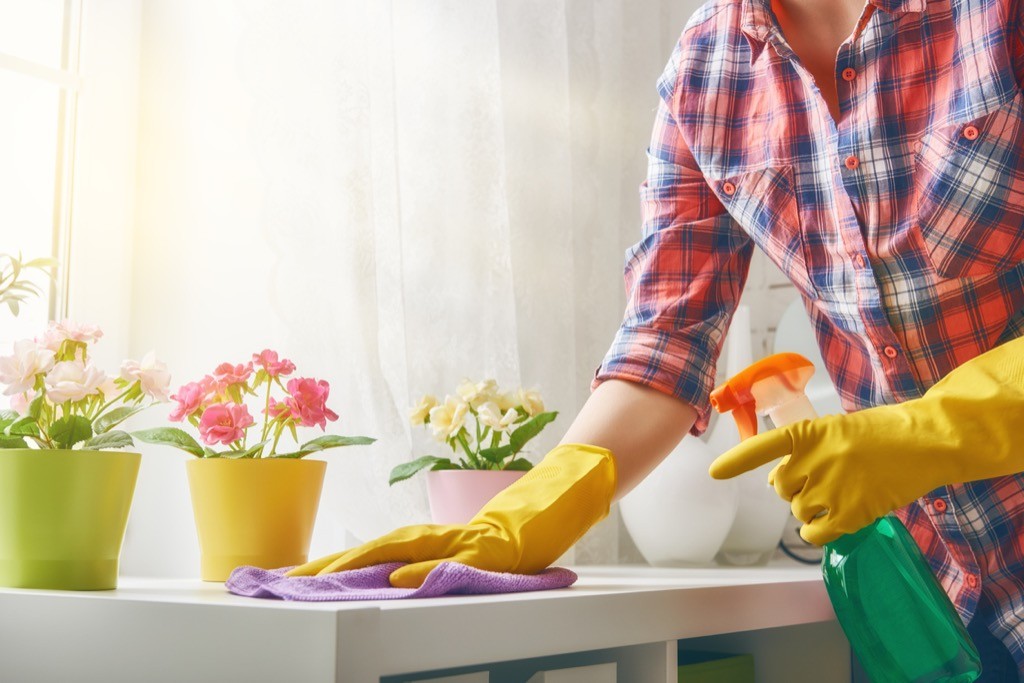
Yes, your bathroom gets dusty, and needs to be dusted regularly. “Not dusting your bathroom before you clean means that rather than actually cleansing it, you’re merely pushing all that dust somewhere else,” says Blue Daisy Maids. “The bacteria will hide in this dust and create even more dust over time, so dusting should always be your first step if you really want to clean your bathroom properly.”
Overcleaning and Undercleaning
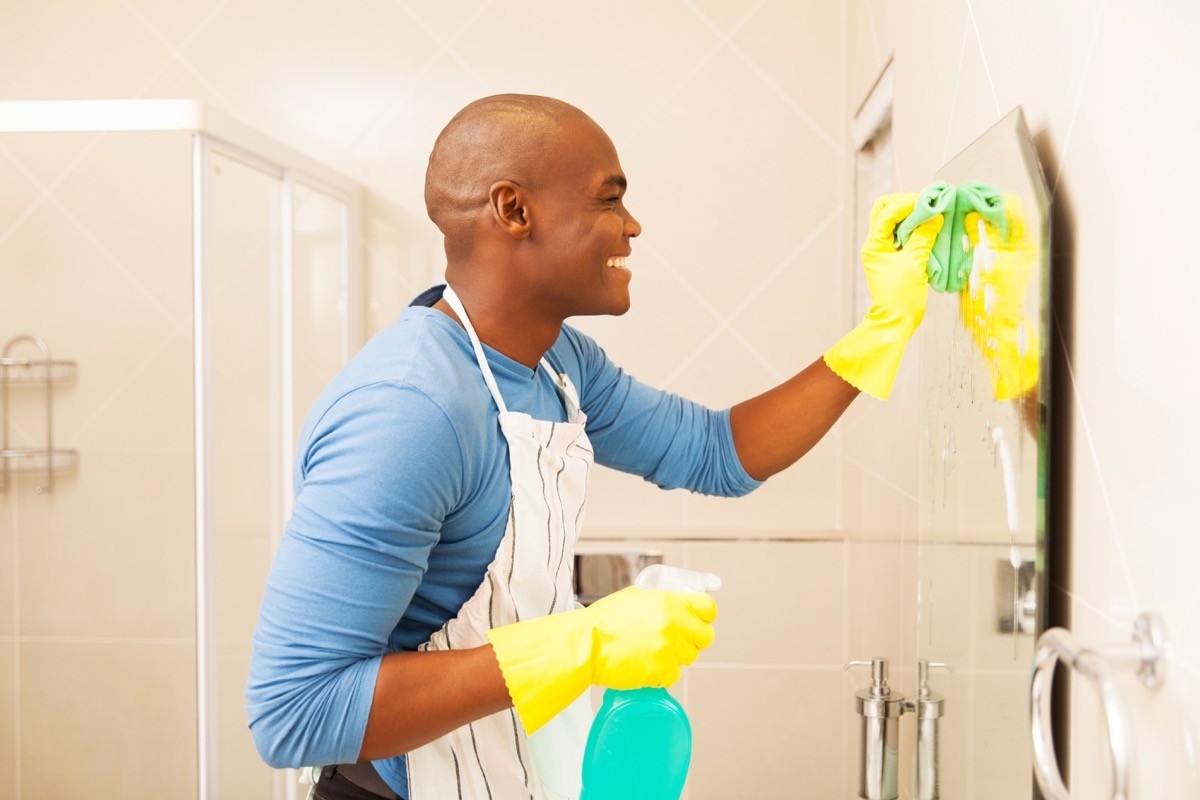
Cleaning the bathroom once a week should be sufficient, experts say. “A lot of microbes grow slowly, especially when we’re talking about yeast and mold in the bathroom,” Kelly Reynolds, PhD, MSPH, tells SELF. “That can take days or weeks to grow.” The exception would be if you’re sharing a living space with someone who has an infectious illness. “Try to not share the bathroom with them, but if you must, clean it daily.”
Mixing Chemicals
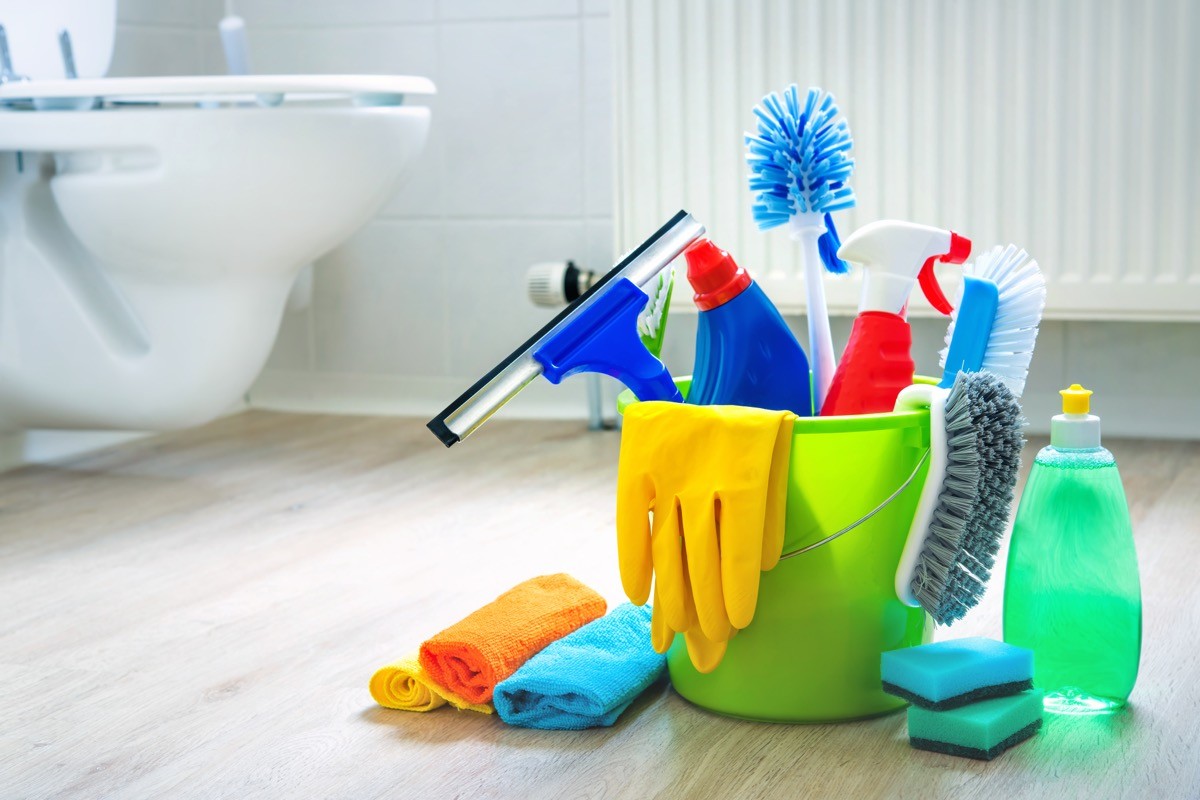
Mixing chemicals can be dangerous, experts warn. “The mixing of harsh chemicals like bleach or ammonia to quickly eliminate odors can produce toxic fumes and irritate the respiratory system, particularly when ventilation is inadequate,” Dr. Laura Haupert, Ph.D., the Chief Scientific Officer for OMI Industries, tells Real Simple.
Not Ventilating Properly
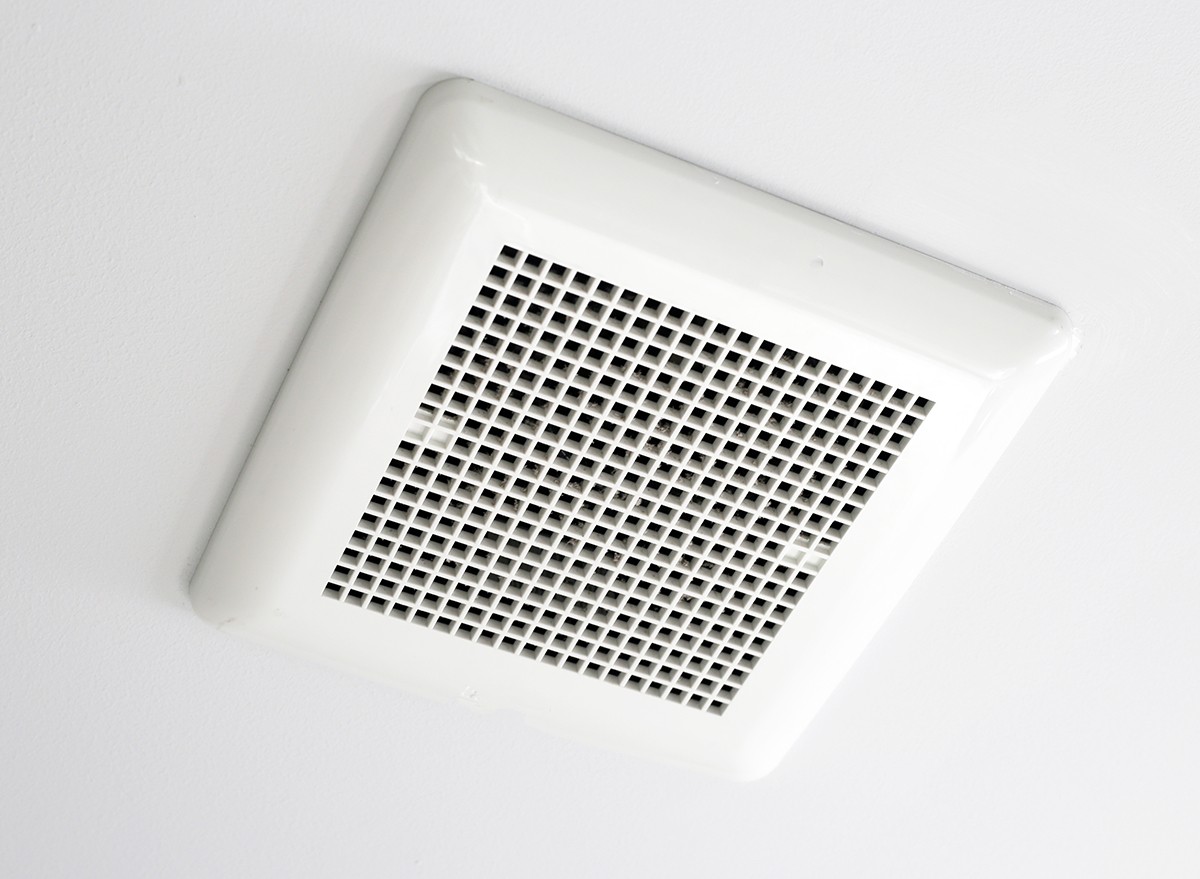
Always ventilate the bathroom after using chemicals. “If your bathroom has an exhaust fan, it’s there for a reason, so don’t forget to turn it on when the cleanup is done,” says Blue Daisy Maids. “If you don’t have an exhaust fan, leave a window open, instead. This will chase the rest of the lingering chemicals out of the room, and ensure your health and cleanliness afterward.”
RELATED: 10 Simple Steps to Declutter Your Bathroom Fast.
Dirty Toilet Brush

Don’t skip cleaning the toilet brush. “Toilet brushes are full of bacteria for obvious reasons and should be cleaned regularly,” according to Better Home Cleaning. “Once a month, place the brush into a cup of white vinegar and then allow it to dry completely before storing it. You can use the toilet seat to hold the brush in place while it dries. To keep the brush from accumulating extra bacteria, always dry after each use.”
Scrubbing With Paper Towels
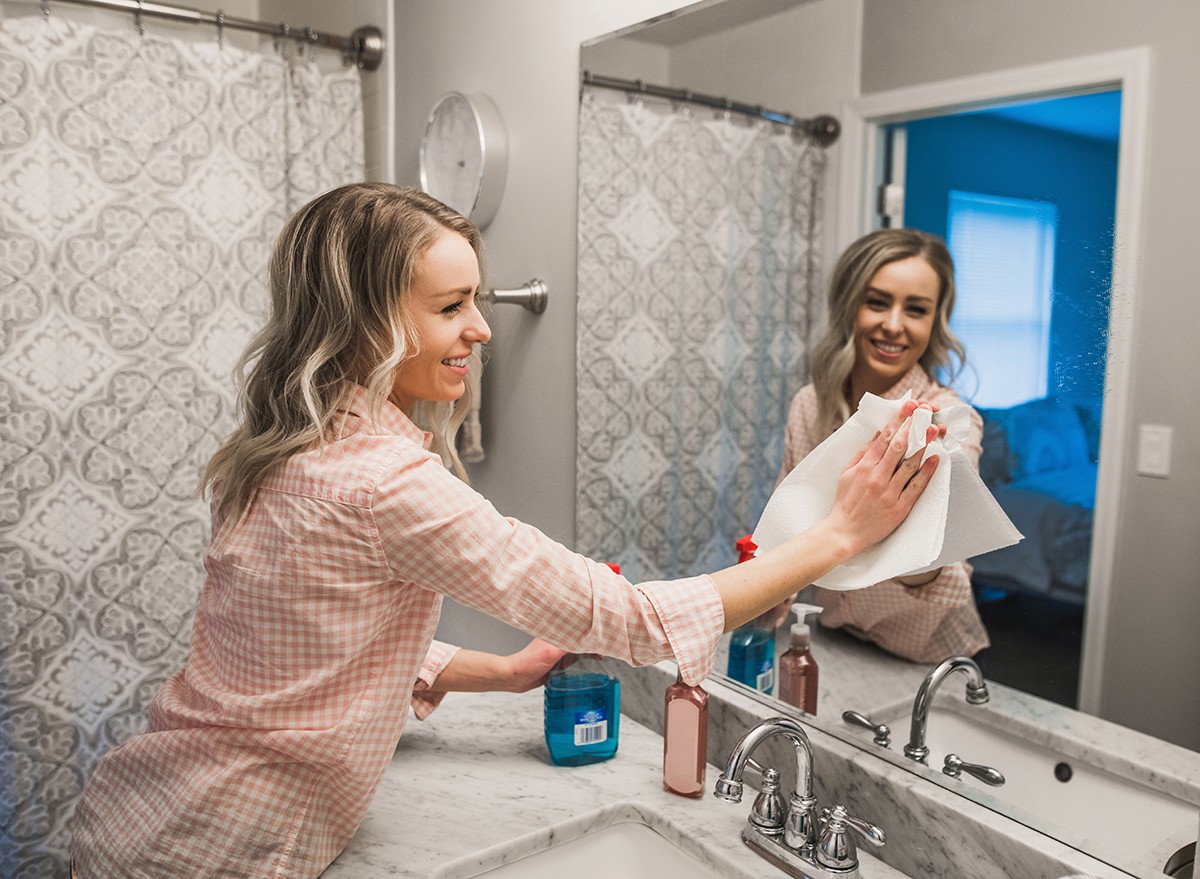
Don’t use paper towels to scrub if you can avoid it. “Paper towels are not ideal because they often leave visible bits and pieces on the mirror,” Spencer Martin, Founder and CEO of Sonic Power, tells Real Simple. “My favorite material is what’s called a Swedish cloth which is made of 100 percent naturally biodegradable cellulose and wood pulp. Furthermore, just one Swedish cloth can replace over a dozen rolls of paper towels.”
Not Cleaning Shower Curtains
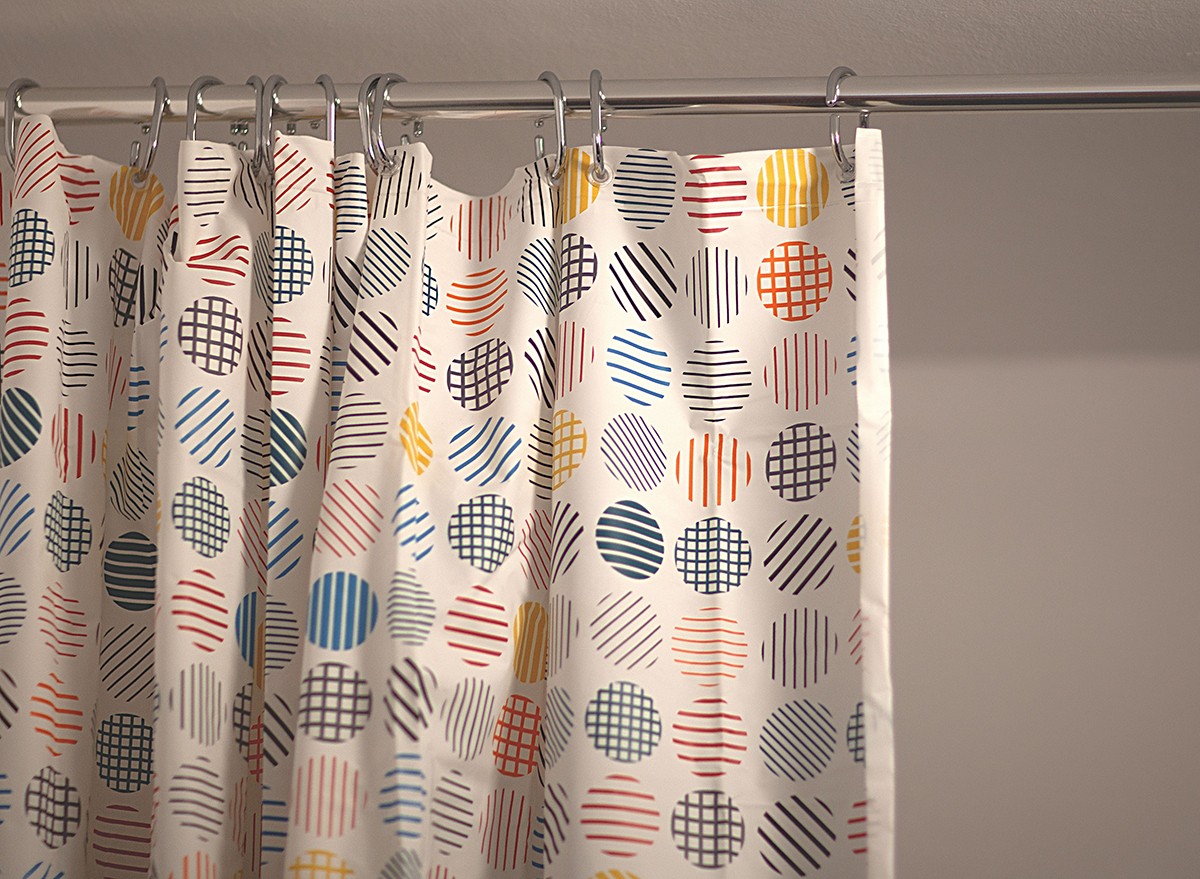
Don’t forget to properly clean your shower curtains. “Bacteria, yeast and mold love a moist area, like the shower curtain,” says Dr. Gudipati. “Whether it’s plastic or cloth, it can hold onto bacteria and, in damper climates, even grow mold. The shower curtain harbors more bacteria than anything else in your bathroom, with up to 16 million colony-forming units.”